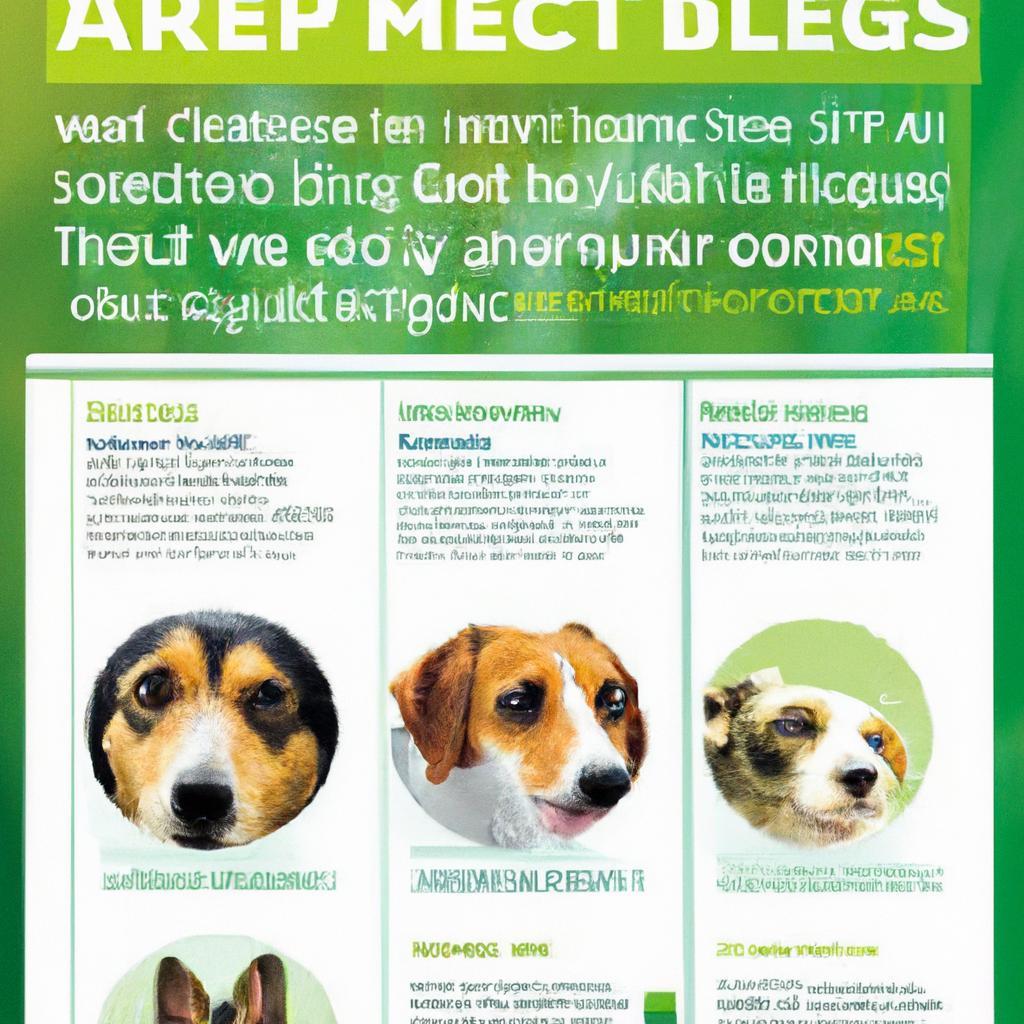Meet Sarah, a devoted dog lover who dreamed of adopting a furry friend. However, her excitement quickly turned to concern when she learned that some breeds trigger allergies more than others. After researching, she discovered that the Poodle, known for its hypoallergenic coat, could be the perfect match. With its curly fur that traps dander and hair, the Poodle minimizes allergic reactions. Sarah adopted one, and her home filled with joy, proving that the right breed can make all the difference for allergy sufferers. Choose wisely; your perfect companion awaits!
Contents
- Understanding Canine Allergens and Their Impact on Allergy Sufferers
- Identifying the Dog Breeds Most Associated with Allergic Reactions
- Effective Strategies for Minimizing Allergies in Dog Owners
- Choosing Hypoallergenic Breeds: Recommendations for Allergy-Prone Families
- Q&A
Understanding Canine Allergens and Their Impact on Allergy Sufferers
Allergens are substances that can trigger allergic reactions in sensitive individuals, and when it comes to dogs, the primary culprits are proteins found in their skin cells, urine, and saliva. These proteins can become airborne or settle on surfaces, leading to exposure for allergy sufferers. Understanding the nature of these allergens is crucial for those considering dog ownership, especially for individuals with a history of allergies. The impact of canine allergens can vary significantly depending on the breed, as some dogs produce fewer allergens than others.
When evaluating dog breeds, it’s essential to recognize that no breed is entirely hypoallergenic. However, certain breeds are known to produce fewer allergens, making them more suitable for allergy sufferers. Breeds such as **Poodles**, **Bichon Frises**, and **Portuguese Water Dogs** are often recommended due to their low-shedding coats and reduced dander production. These breeds can provide companionship without exacerbating allergy symptoms, allowing individuals to enjoy the benefits of pet ownership while minimizing discomfort.
On the other hand, some breeds are notorious for causing allergic reactions. Breeds like **German Shepherds**, **Golden Retrievers**, and **Bulldogs** are known to produce higher levels of allergens, which can lead to increased symptoms in sensitive individuals. The shedding of fur and dander from these breeds can significantly impact the living environment, making it challenging for allergy sufferers to coexist with them. Understanding these differences can help potential dog owners make informed decisions that align with their health needs.
In addition to breed selection, it’s important to consider other factors that can influence allergen levels in the home. Regular grooming, cleaning, and air filtration can help reduce the presence of allergens, regardless of the breed. Implementing a consistent cleaning routine and using hypoallergenic products can create a more comfortable living space for allergy sufferers. Ultimately, choosing the right breed and maintaining a clean environment can significantly mitigate the impact of canine allergens on those with sensitivities.
Identifying the Dog Breeds Most Associated with Allergic Reactions
When it comes to dog breeds and allergies, certain breeds are more notorious for triggering allergic reactions in sensitive individuals. Understanding which breeds are commonly associated with allergens can help potential dog owners make informed decisions. Here are some breeds that are frequently linked to allergy issues:
- Bulldogs: Known for their loose skin and distinctive wrinkles, Bulldogs can harbor allergens in their folds, leading to increased reactions.
- Retrievers: While they are beloved family pets, breeds like Golden and Labrador Retrievers shed a significant amount of dander and fur, which can exacerbate allergies.
- Terriers: Many terrier breeds, such as the Jack Russell and the West Highland White Terrier, are known for their energetic nature but can also produce high levels of allergens through their fur and skin.
- Shepherds: Breeds like the German Shepherd are not only popular for their intelligence but also for their heavy shedding, which can contribute to allergic reactions.
On the other hand, some breeds are often recommended for allergy sufferers due to their hypoallergenic qualities. These breeds typically produce less dander and are less likely to trigger allergic responses. Consider the following hypoallergenic breeds:
- Poodles: Available in standard, miniature, and toy sizes, Poodles have a curly coat that traps dander and hair, preventing it from spreading in the home.
- Bichon Frise: This breed is known for its soft, curly coat that requires regular grooming, which helps minimize allergens.
- Portuguese Water Dog: With a dense, curly coat similar to a Poodle, this breed is often recommended for allergy sufferers.
- Shih Tzu: Their long, flowing coat can be managed with regular grooming, reducing the amount of dander released into the environment.
It’s essential to remember that individual reactions can vary significantly. While some breeds are generally considered hypoallergenic, no dog is completely free of allergens. Factors such as grooming habits, environment, and individual sensitivities play a crucial role in determining whether a specific breed will trigger allergies. Therefore, it’s advisable for prospective dog owners to spend time with a breed before making a commitment, allowing them to gauge their personal reactions.
understanding the relationship between dog breeds and allergies is vital for anyone considering bringing a dog into their home. By choosing a breed that aligns with your health needs, you can enjoy the companionship of a dog while minimizing the risk of allergic reactions. Always consult with a healthcare professional if you have concerns about allergies and consider adopting a dog that fits your lifestyle and health requirements.
Effective Strategies for Minimizing Allergies in Dog Owners
For dog owners who are prone to allergies, implementing effective strategies can significantly enhance their quality of life while still enjoying the companionship of their furry friends. One of the most impactful measures is to choose hypoallergenic dog breeds. These breeds are known to produce fewer allergens, making them a more suitable choice for sensitive individuals. Breeds such as Poodles, Bichon Frises, and Maltese are often recommended due to their low-shedding coats and reduced dander production.
Another essential strategy is to maintain a clean living environment. Regular cleaning can help minimize allergens that accumulate in the home. Consider the following practices:
- Frequent vacuuming: Use a vacuum cleaner equipped with a HEPA filter to trap allergens effectively.
- Wash bedding and toys: Regularly launder your dog’s bedding and toys to reduce dander and hair.
- Air purification: Invest in air purifiers with HEPA filters to help remove airborne allergens.
Grooming your dog regularly is another vital component in managing allergies. By brushing your dog outside and bathing them weekly, you can significantly reduce the amount of loose hair and dander that circulates in your home. Additionally, using specialized grooming tools designed to minimize shedding can further decrease allergen levels. It’s also advisable to consult a professional groomer who understands the needs of allergy sufferers.
Lastly, consider establishing dog-free zones within your home, particularly in bedrooms and other areas where you spend significant time. This practice can create a safe haven for those who are particularly sensitive to allergens. By implementing these strategies, dog owners can enjoy the love and companionship of their pets while minimizing the impact of allergies on their daily lives.
Choosing Hypoallergenic Breeds: Recommendations for Allergy-Prone Families
For families grappling with allergies, selecting the right dog breed can make all the difference in creating a harmonious home environment. While no dog is completely hypoallergenic, certain breeds are known to produce fewer allergens, making them more suitable for allergy-prone individuals. When considering a new furry family member, it’s essential to focus on breeds that are less likely to trigger allergic reactions.
Some of the most recommended hypoallergenic breeds include:
- Poodle: Available in standard, miniature, and toy sizes, Poodles have a curly coat that traps dander and hair, preventing it from spreading in the home.
- Bichon Frise: This breed boasts a soft, curly coat that requires regular grooming, which helps minimize shedding and dander.
- Portuguese Water Dog: Known for their energetic nature and intelligence, these dogs have a dense, curly coat that is less likely to cause allergic reactions.
- Shih Tzu: With their long, flowing hair, Shih Tzus are often considered hypoallergenic due to their low-shedding coats.
In addition to breed selection, it’s crucial to consider grooming and maintenance practices. Regular grooming not only keeps your dog looking its best but also helps reduce the amount of dander and hair in your home. Frequent baths, brushing, and professional grooming can significantly decrease allergens, making it easier for allergy sufferers to coexist with their canine companions.
Furthermore, creating an allergy-friendly environment is vital. Designate specific areas in your home for your dog, and consider using air purifiers to reduce airborne allergens. Regular cleaning routines, including vacuuming with HEPA filters and washing dog bedding, can also help manage allergens effectively. By taking these proactive steps, allergy-prone families can enjoy the companionship of a dog while minimizing the risk of allergic reactions.
Q&A
-
Which dog breeds are known to cause the most allergies?
Breeds often associated with higher allergy rates include:
- Golden Retrievers
- German Shepherds
- Beagles
- Bulldogs
These breeds are known to produce more dander and saliva, which can trigger allergic reactions in sensitive individuals.
-
Are there hypoallergenic dog breeds?
Yes, some breeds are considered hypoallergenic, meaning they are less likely to trigger allergies. These include:
- Poodle
- Bichon Frise
- Portuguese Water Dog
- Shih Tzu
While no dog is completely hypoallergenic, these breeds may be suitable for allergy sufferers.
-
Can I reduce allergy symptoms around dogs?
Absolutely! Here are some effective strategies:
- Regular grooming and bathing of your dog
- Using air purifiers to reduce airborne allergens
- Establishing pet-free zones in your home
- Frequent cleaning of carpets and upholstery
Implementing these measures can significantly alleviate allergy symptoms.
-
Should I consult a doctor before getting a dog?
Yes, it is advisable to consult with an allergist or your healthcare provider. They can:
- Conduct allergy tests to determine your sensitivity
- Provide personalized recommendations based on your health
- Help you choose a breed that may be more suitable for you
Taking this step can help ensure a harmonious relationship between you and your future pet.
while no dog breed is entirely hypoallergenic, understanding which breeds may trigger allergies can help prospective pet owners make informed decisions. Choose wisely, and you can enjoy the companionship of a furry friend without compromising your health.

大家好,我是彼得潘,專業的手法身體治療師。我喜歡探索和研究各種主題,並透過與人工智慧的合作分享專業、實用、有趣的文章。我們定期進行人工審核,以確保內容的準確性。如果您發現文章中有任何不準確的地方,請隨時與我們聯繫,我們會及時糾正。您可以透過 [email protected] 與我們聯繫。



